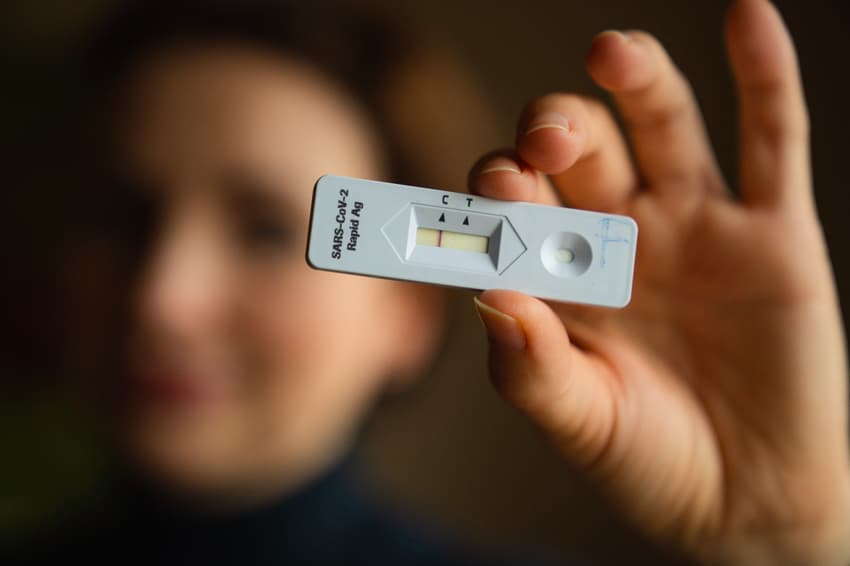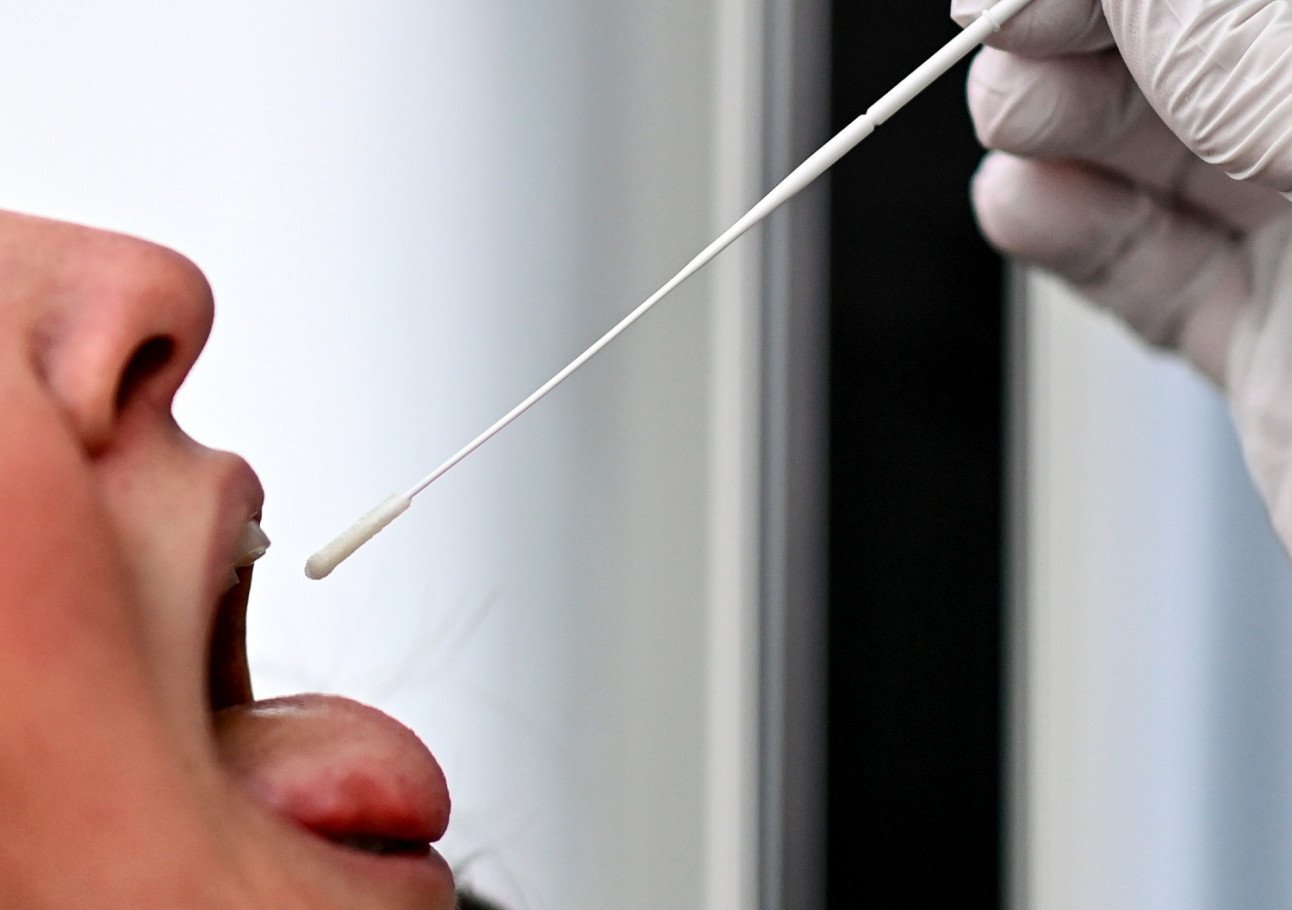EXPLAINED: How Germany will change Covid-19 strategy and ramp up testing

Germany is changing its Covid-19 testing strategy again, with a focus on increased rapid antigen tests and more availability of PCR tests. Here's what we know so far.
What's the latest?
On Tuesday Health Minister Jens Spahn announced plans for free rapid coronavirus tests to be available to everyone in Germany.
This is part of changes to the National Testing Strategy aimed at trying to help the country return to some kind of normality in the pandemic, and keep numbers down after it emerges from shutdown.
The current lockdown measures were last week extended to March 7th, but some schools are opening up this month.
READ ALSO: Germany plans free coronavirus rapid tests for all residents
What's happening with rapid Covid tests?
Germany is to offer free Covid-19 rapid antigen tests to everyone in the country from next month to tackle the next phase of the coronavirus pandemic.
"From March 1st, all citizens will be able to be tested free of charge by trained personnel" with the antigen tests, Health Minister Jens Spahn said in a tweet.
The country is also planning a roll out of self-administered rapid tests after they are approved by national drug regulator BfArM. This is expected to happen in early March.
An increased availability of antigen tests, and tests that can be self-administered, are expected to play an important role as Germany starts to reopen schools and other facilities after months of closure.
Aren't rapid tests used already?
Yes. The government has already expanded the use of rapid tests. They are now used regularly in old people's homes, clinics and - only after outbreaks - also in schools - but for the time being only by trained staff.
"These tests can contribute to a safe everyday life, especially in schools and daycare centres," said Spahn.
Last week during a press conference in Berlin, Spahn also said companies, such as retailers, could use self-administered tests in future to help with reopening public life safely.
"Rapid antigen tests can make an important contribution to finding a way out of the lockdown," said Frankfurt virologist Sandra Ciesek at the press conference.
Ciesek said a study carried out in Hesse last autumn, which saw 10,000 self-administered tests being given out to teachers before and after the holidays, worked "very well".
 A rapid test being carried out in Berlin. Photo: DPA
A rapid test being carried out in Berlin. Photo: DPA
The tests are usually done with a saliva swab. Two strips indicate that someone is positive - one means a negative detection.
Ciesek also emphasised that these tests, like all, do not offer 100 percent certainty but can act as an additional safety measure to help break chains of infection.
READ ALSO: Germany plans to allow sale of Covid-19 home test kits
The Robert Koch Institute (RKI) has been recommending that people get a PCR test for extra confirmation if they receive a positive antigen test result.
Can we currently pay to receive an antigen test?
Yes. Private testing centres have popped up across Germany offering rapid tests as well as PCR tests. Berlin's famous KitKat club even got a new lease of life after it turned into a rapid test centre.
People in German use them before and after travel, or before visiting family and friends at Christmas time, for example.
Test costs can vary, from around €50 to €100, but can be more depending on the provider.
It is unclear the impact that free rapid tests will have on these centres - and how testing will be documented in future.
Are other countries embracing rapid testing?
Yes. Neighbouring Austria, for example, has already moved to widespread rapid Covid-19 testing in a bid to keep numbers down after its lockdown
You need a negative test result for some services, such as to get a haircut or a tattoo. Tests are also free.
France also ramped up its testing strategy last year, offering easily accessible antigen and PCR tests, which are fully reimbursed to residents who are registered in the health system.
What's the difference between rapid and PCR tests?
Unlike PCR (polymerase chain reaction) tests that must be analysed in a lab, antigen testing can be done from saliva with a result given on the spot within 30 minutes.
That makes it easier and faster to test large numbers of people, though antigen tests are less reliable in detecting Covid-19 in people who are not showing symptoms.
Is there anything else changing about the testing strategy?
Yes. Health Minister Spahn said last Friday that PCR testing requirements are changing again in Germany.
From this week, everyone in Germany who experiences any Covid-19 symptoms (such as a fever or cough) should be able to get a PCR test covered by health insurance from their doctor.
Spahn said laboratories have the capacity to process more tests again.
Germany changed its test strategy in November, scaling back on the number of Covid tests offered compared to the first part of the pandemic, in order for laboratories to cope during the winter season, and to avoid overloading doctors' surgeries.
Authorities said this was because so many people have colds and flu in winter with similar symptoms to coronavirus.
They instead urged people with cold symptoms to isolate, and aimed to only offer testing to those with strong Covid-19 symptoms, such as a loss of taste or smell, or people who had been in contact with an infected person.
If someone suspects they have Covid-19 they can ask their doctor for a test, which is covered by health insurance. But it is the doctor's decision on whether a test is offered.
Comments (1)
See Also
What's the latest?
On Tuesday Health Minister Jens Spahn announced plans for free rapid coronavirus tests to be available to everyone in Germany.
This is part of changes to the National Testing Strategy aimed at trying to help the country return to some kind of normality in the pandemic, and keep numbers down after it emerges from shutdown.
The current lockdown measures were last week extended to March 7th, but some schools are opening up this month.
READ ALSO: Germany plans free coronavirus rapid tests for all residents
What's happening with rapid Covid tests?
Germany is to offer free Covid-19 rapid antigen tests to everyone in the country from next month to tackle the next phase of the coronavirus pandemic.
"From March 1st, all citizens will be able to be tested free of charge by trained personnel" with the antigen tests, Health Minister Jens Spahn said in a tweet.
The country is also planning a roll out of self-administered rapid tests after they are approved by national drug regulator BfArM. This is expected to happen in early March.
An increased availability of antigen tests, and tests that can be self-administered, are expected to play an important role as Germany starts to reopen schools and other facilities after months of closure.
Aren't rapid tests used already?
Yes. The government has already expanded the use of rapid tests. They are now used regularly in old people's homes, clinics and - only after outbreaks - also in schools - but for the time being only by trained staff.
"These tests can contribute to a safe everyday life, especially in schools and daycare centres," said Spahn.
Last week during a press conference in Berlin, Spahn also said companies, such as retailers, could use self-administered tests in future to help with reopening public life safely.
"Rapid antigen tests can make an important contribution to finding a way out of the lockdown," said Frankfurt virologist Sandra Ciesek at the press conference.
Ciesek said a study carried out in Hesse last autumn, which saw 10,000 self-administered tests being given out to teachers before and after the holidays, worked "very well".
 A rapid test being carried out in Berlin. Photo: DPA
A rapid test being carried out in Berlin. Photo: DPA
The tests are usually done with a saliva swab. Two strips indicate that someone is positive - one means a negative detection.
Ciesek also emphasised that these tests, like all, do not offer 100 percent certainty but can act as an additional safety measure to help break chains of infection.
READ ALSO: Germany plans to allow sale of Covid-19 home test kits
The Robert Koch Institute (RKI) has been recommending that people get a PCR test for extra confirmation if they receive a positive antigen test result.
Can we currently pay to receive an antigen test?
Yes. Private testing centres have popped up across Germany offering rapid tests as well as PCR tests. Berlin's famous KitKat club even got a new lease of life after it turned into a rapid test centre.
People in German use them before and after travel, or before visiting family and friends at Christmas time, for example.
Test costs can vary, from around €50 to €100, but can be more depending on the provider.
It is unclear the impact that free rapid tests will have on these centres - and how testing will be documented in future.
Are other countries embracing rapid testing?
Yes. Neighbouring Austria, for example, has already moved to widespread rapid Covid-19 testing in a bid to keep numbers down after its lockdown
What's the difference between rapid and PCR tests?
Unlike PCR (polymerase chain reaction) tests that must be analysed in a lab, antigen testing can be done from saliva with a result given on the spot within 30 minutes.
That makes it easier and faster to test large numbers of people, though antigen tests are less reliable in detecting Covid-19 in people who are not showing symptoms.
Is there anything else changing about the testing strategy?
Yes. Health Minister Spahn said last Friday that PCR testing requirements are changing again in Germany.
From this week, everyone in Germany who experiences any Covid-19 symptoms (such as a fever or cough) should be able to get a PCR test covered by health insurance from their doctor.
Spahn said laboratories have the capacity to process more tests again.
Germany changed its test strategy in November, scaling back on the number of Covid tests offered compared to the first part of the pandemic, in order for laboratories to cope during the winter season, and to avoid overloading doctors' surgeries.
Authorities said this was because so many people have colds and flu in winter with similar symptoms to coronavirus.
They instead urged people with cold symptoms to isolate, and aimed to only offer testing to those with strong Covid-19 symptoms, such as a loss of taste or smell, or people who had been in contact with an infected person.
If someone suspects they have Covid-19 they can ask their doctor for a test, which is covered by health insurance. But it is the doctor's decision on whether a test is offered.
Join the conversation in our comments section below. Share your own views and experience and if you have a question or suggestion for our journalists then email us at [email protected].
Please keep comments civil, constructive and on topic – and make sure to read our terms of use before getting involved.
Please log in here to leave a comment.